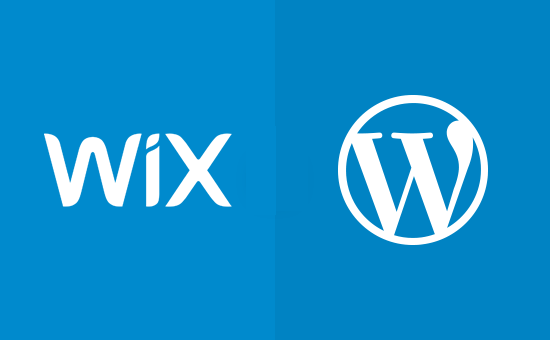
Wordpress vs Wix
When it comes to building a website, two popular options often come to mind: WordPress and Wix. Both platforms offer robust tools for creating and managing websites, but they cater to different needs and levels of expertise. This article compares WordPress and Wix, highlighting their key features, ease of use, customization capabilities, and overall flexibility, ultimately demonstrating why WordPress is the better choice for most users.
Key Features and Flexibility
WordPress: WordPress is an open-source content management system (CMS) that powers over 40% of all websites on the internet. Its primary strength lies in its flexibility and vast ecosystem. WordPress offers thousands of themes and plugins, allowing users to extend their website’s functionality in virtually any direction. Whether you’re running a blog, an e-commerce store, a portfolio, or a corporate website, WordPress can handle it all.
Wix: Wix is a cloud-based website builder that provides a drag-and-drop interface, making it easy for beginners to create websites without any coding knowledge. Wix offers a variety of templates and apps, but it operates within a more closed ecosystem. While Wix is user-friendly, it lacks the extensibility and customization options that WordPress provides.
WordPress’s open-source nature and extensive library of plugins and themes make it a more versatile and powerful platform, capable of meeting a wide range of website needs.
Ease of Use
WordPress: Setting up a WordPress site requires choosing a hosting provider, installing the WordPress software, and selecting a theme. While this may seem daunting to beginners, many hosting providers offer one-click WordPress installations and pre-configured environments. The WordPress dashboard is user-friendly, and there are countless tutorials and resources available to help users get started.
Wix: Wix shines in its ease of use. Its drag-and-drop builder allows users to design their website visually, without needing to understand HTML or CSS. This makes it an attractive option for those who want to create a website quickly and with minimal effort.
For absolute beginners looking for a simple, straightforward way to build a website without diving into technical details, Wix is more accessible.
Customization and Design
WordPress: WordPress excels in customization. Users have complete control over their website’s design and functionality. With access to both free and premium themes, as well as customizable templates, the possibilities are nearly endless. Moreover, advanced users can edit the underlying code to achieve any specific design or feature they need.
Wix: While Wix offers a range of templates and customization options, it has limitations compared to WordPress. Wix templates are less flexible, and while you can tweak designs, you do not have the same level of control as you do with WordPress. Additionally, once you choose a template in Wix, you cannot switch to another one without rebuilding your site.
For those looking for deep customization and design flexibility, WordPress offers far more options and control than Wix.
SEO and Performance
WordPress: WordPress is renowned for its SEO capabilities. With plugins like Yoast SEO, users can optimize their site for search engines easily. WordPress also allows for more advanced SEO configurations and better control over site speed and performance through various caching and optimization plugins.
Wix: Wix has made significant improvements in its SEO tools, but it still falls short compared to WordPress. While Wix offers basic SEO settings, it lacks the depth and flexibility provided by WordPress plugins. Additionally, because Wix is a closed platform, there are limitations on how much you can optimize your site’s performance.
For those serious about SEO and website performance, WordPress provides superior tools and greater control, leading to better search engine rankings and faster load times.
Cost and Value
WordPress: WordPress itself is free to use, but you will need to pay for hosting, a domain name, and potentially premium themes and plugins. This can make the initial setup more expensive, but the value and flexibility it offers are unmatched. The ability to scale and customize your site as your needs grow adds to its long-term value.
Wix: Wix offers a range of pricing plans, starting from a free plan with Wix-branded ads to more expensive premium plans. While the costs are clear upfront, you may find that as your needs grow, you need to upgrade to more expensive plans. Additionally, Wix’s closed system means you could face limitations that require moving to a more flexible platform like WordPress in the future.
Despite the initial costs, WordPress offers better long-term value due to its scalability and flexibility, making it a worthwhile investment for serious website owners.
Both WordPress and Wix have their strengths, and the right choice depends on your specific needs and technical comfort level. Wix is a solid option for beginners who want to get a site up and running quickly with minimal effort. However, for those who need a more powerful, flexible, and customizable solution, WordPress is the superior choice. Its extensive ecosystem, SEO capabilities, and long-term value make it the preferred platform for many website owners. Whether you are building a blog, an online store, or a corporate site, WordPress provides the tools and flexibility to grow and adapt as your needs evolve.
